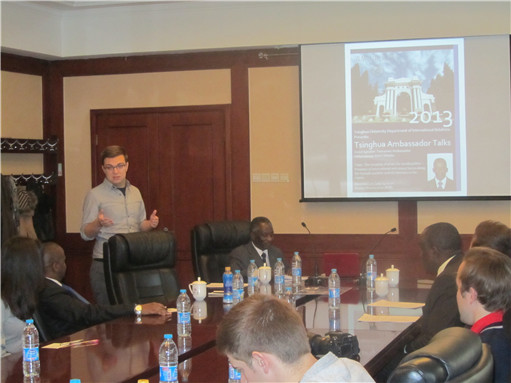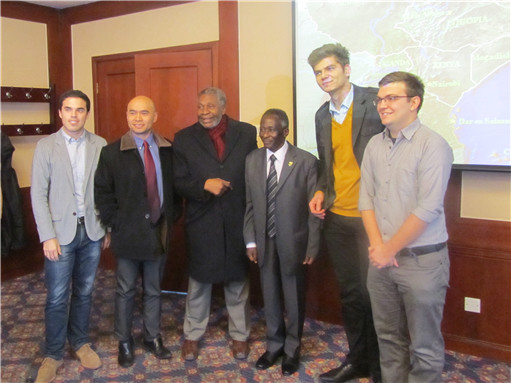Tsinghua Ambassador Talks welcomed Tanzanian Ambassador Abdulrahman Amiri Shimbo who gave a speech on piracy, the continued presence of international anti-piracy forces along the Somali coastline, and international interests in the region.
The Ambassador first provided students with a brief historical account of contemporary piracy off Africa's Eastern coast, explaining that it can largely be dated back to the collapse of the Somali government in 1991. The resulting void in authority lead to increased illegal fishing in the area by foreign fishing trawlers which ultimately jeopardized the livelihood of many local fishermen. The dumping of toxic waste into local fishing waters further constrained the ability of fishermen to make a living. In response, they beginning arming and organizing themselves in order to stop the trawlers. However, while the locals initially stopped and captured mostly fishing ships, over time, they increasingly halted and commandeered commercial ships as well, finding ransoming such ships a profitable alternative source of income. Such pirates are most often between the ages of 20 and 35, and include fishermen, ex-militia, and the later-joining technical experts which help track boats, evade capture, and organize and collect ransom money.
Ambassador Shimbo also went on to explain the specific tactics and strategies used by many pirates in capturing boats, as well as their methods of eventually collecting ransom. His highlighting of many of his personal experiences directly interacting with such pirates further helped to both clarify and emphasize the continued importance of the issue in the region.
The Ambassador applauded the relatively successful efforts of Combined Taskforces 150 and 151, as well as Nato's Ocean Shield and the EU's Atalanta operations in continuing to curb piracy off the coast of Somalia and in the region as a whole. Ultimately, however, he believes that any truly successful effort to control piracy will require increased attention to the internal conditions within the country of Somalia. Efforts to support the establishment of effective central government, as well as to alleviate the terrible effects of continued poverty in Somalia – which, he says, should include commanding foreign fishing trawlers to pay Somalia for such activities – would go a long way to solving the problem of piracy.
Finally, in closing out the talks, Ambassador Shimbo addressed questions posed by the audience. Such questions included how he sees the piracy issue evolving in the coming years, his opinions regarding EU, NATO, and possible South African involvement, issues of leadership and organization amongst pirates and their relationship with Somalia, and China's role both in anti-piracy and Tanzania as a whole. The Tanzanian Ambassador answered all questions thoroughly and, drawing on his vast personal experience, provided a thorough account of both the evolution of and continued importance of piracy in the region.

